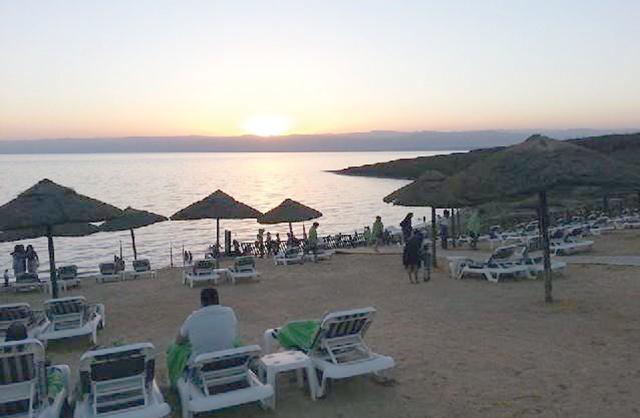You are here
Holiday season brings no cheer to hospitality sector
By Bahaa Al Deen Al Nawas - Dec 29,2020 - Last updated at Dec 29,2020
AMMAN — As the New Year holidays approach, festivities remain at an all time low and the associated activity in the entertainment and tourism industries is very modest to say the least, according to stakeholders.
Hotels occupancy low with few guests, major tourist sites quiet and celebrations cancelled. These indicators among many others reveal the magnitude of the economic downturn across several sectors, they said.
“The occupancy rate in Petra and Wadi Musa is zero per cent, and in the Dead Sea, the average is 10 per cent,” Chairman of the Jordan Hotels Association’s Board of Directors Abdul Hakeem Al Hindi told The Jordan Times on Tuesday over the phone.
Hindi noted that banning the operation of spas, swimming pools and other facilities rendered hotels merely places to rent a room without any amenities, noting that the Friday lockdown forces guests to remain in their rooms effectively without any event taking place.
“Things are not looking good,” he said.
“The tourism sector as a whole has suffered at least a billion dinar worth of losses. Figures from the Central Bank of Jordan show that in 2019, the sector’s revenues reached JD4.1 billion, and this year the figure was at least 85 per cent less than that,” Hindi said.
Around 20 per cent of hotels were rented by the government and used for quarantine purposes related to the pandemic. This has helped but “not very much”, according to Hindi.
“Three-star hotels now cost only JD30, four-star JD40 and five-star JD50 per night including three meals, but even at these prices occupancy remained very low,” he said.
An employee at a hotel in Aqaba said that occupancy around this time of the year reaches 90 to 95 per cent, but this year it has barely reached the 20 per cent threshold, attributing this drop to the pandemic and a host of related governmental decisions.
President of the Aqaba Hotels Association, Salah Bitar, said that “Aqaba has not been considered properly” during in the COVID-19 crisis given its status as an economic hub and a regional gate, noting that it had no representation in the National Centre for Security and Crisis Management.
The economy of Aqaba depends largely on tourism, he said.
“Many households are suffering financially. There should have been better balance between public health and the economy. Now the economy is in shambles,” Bitar told The Jordan Times over the phone.
An employee at one of the hotels in Petra voiced his worries.
“The only reason we are open today is because we know we are receiving two guests for a couple of days, we will probably shut down after that,” the employee said.
“Due to the impact COVID-19 has had on the economy, most people are more focused on meeting their basic needs as opposed to vacationing and tourism. Even those who can afford vacations cannot enjoy them when there is a ban on using almost every hotel facility. For me, I would rather spend the New Year holidays in the comfort of my own home,” Othman Weshah, an Amman resident, said.
Weshah said that almost every year, he would use the end of year days off to go out with friends and celebrate in either Aqaba or on the Dead Sea, but the circumstances of this year have changed this tradition.
Related Articles
AMMAN — The hotel sector is hoping for a revival after the government’s decision to reopen hotel facilities as of February 1, according to a
AMMAN — Hotel occupancy rates in the Kingdom during Eid Al Adha were not up to expectations, according to the Jordan Hotels Association (JHA
AMMAN — Hotel occupancy rates witnessed a slump as the Kingdom is still reeling from a days-long heatwave that began last week, according to













